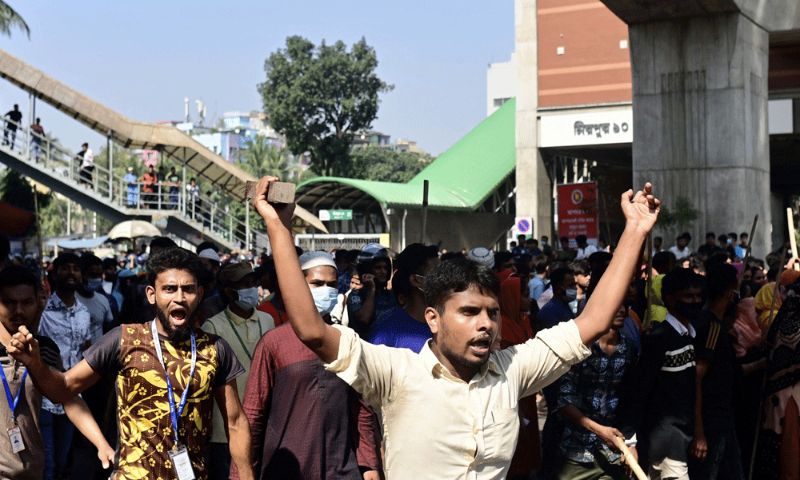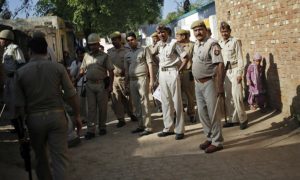DHAKA, Bangladesh: In Bangladesh, hundreds of clothing factories have closed down due to tumultuous protests where thousands of laborers are demanding a nearly threefold increase in their wages, according to the police report on Thursday.
Bangladesh’s 3,500 garment factories constitute approximately 85 percent of the country’s $55 billion annual exports, supplying renowned Western brands like Adidas, Gap, H&M, and Levi Strauss.
However, the conditions for many of the industry’s four million workers, the majority of whom are women, are dire, with monthly wages starting at 8,300 taka ($75).
Since the protests began over the weekend, police have reported that workers have looted numerous factories in Gazipur and other industrial areas on the outskirts of the capital, Dhaka.
According to Gazipur police chief Sarwar Alam, “More than 250 garment factories have closed due to the protests. Up to 50 factories have been looted and vandalized, with four or five of them set on fire.”
He further added, “When one factory is looted, neighboring factories hesitate to remain open.”
Beyond that, Ashulia deputy police chief Mahmud Naser stated that at least 50 “very large factories” with over 15,000 employees in his industrial town had ceased operations.
Since the commencement of the protests, police statistics reveal that two workers have lost their lives, and many more have been injured.
The Bangladesh Garment Manufacturers and Exporters Association (BGMEA), representing factory owners, has offered a 25 percent wage increase, falling significantly short of the 23,000 taka ($209) monthly wage advocated by the protesting workers.
Police officials informed AFP that several thousand workers have blocked roads in Dhaka to emphasize their demands. In Gazipur, officers “dispersed and peacefully removed” nearly 1,000 workers who had blocked a road and staged protests, according to senior police officer Abu Siddique.
In Mirpur, Dhaka’s west, protests have persisted for a third day, where police in riot gear have used tear gas and sound grenades against several thousand workers blocking a road.
Paramilitary troops from the Border Guard Bangladesh (BGB) have been deployed in the hardest-hit areas to “prevent violence,” according to BGB Lieutenant Colonel Zahid Parvez.
Dhaka Metropolitan Police deputy commissioner Nazmul Hasan stated that the police suspect that the opposition Bangladesh Nationalist Party (BNP) is inciting the protests.
These protests have coincided with separate demonstrations by opposition parties demanding the resignation of Prime Minister Sheikh Hasina, who faces elections in January.
The Clean Clothes Campaign group, a global network advocating for workers’ rights, strongly condemns the violent suppression of the garment workers’ protests. They also point out that the brands sourcing from Bangladesh have played a significant role in recent developments, with most of them refusing to publicly support the union’s demands for higher wages.
























